In conversation with: Maria Leiloglou, Research Associate in the Hamlyn Centre, Imperial College London; and Martha Kedrzycki, Academic Surgical Registrar within the Imperial College Healthcare NHS Trust.
What is GLOW?
GLOW stands for ‘Guiding Light Optimizing Wide local excisions’. It describes the fluorescence imaging empowering surgeons to provide accurate breast-conserving surgery to their patients.
1 in 7 women will be diagnosed with breast cancer during their lifetime. Most of these women will have early-stage breast cancer, and as such their treatment will be breast-conserving surgery. In breast-conserving surgery only the tumour and a small amount of normal breast tissue (margin) surrounding the tumour is removed, allowing women to keep as much of the remaining normal breast tissue as possible. However, approximately 1 in 5 women undergoing breast-conserving surgery will have a positive margin (i.e. cancer cells are detected) meaning some cancer cells may have been left behind, which increases the risk of the cancer coming back. To reduce this risk, they will need a second surgery to remove further tissue.
Our research team has been exploring the use of fluorescent guidance during breast-conserving surgery. By using fluorescent dyes that target cancer cells, we can essentially ‘light up the tumour’ in the infrared (not visible) spectrum. This helps surgeons to identify and remove all cancerous tissue in real-time during the first operation. This technique has the potential to significantly reduce the need for second surgeries and improve outcomes for women undergoing breast-conserving surgery.
Who are we?
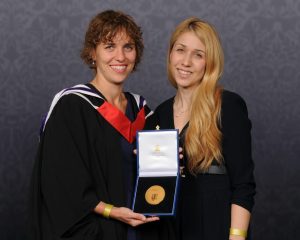
Maria Leiloglou is currently a Research Associate in the Hamlyn Centre for Robotic Surgery committed to clinical translation of smart devices to positively transform the future of healthcare. During her PhD (2018-2022) she developed and translated three smart cameras that could be used in real-time to assist surgeons in identifying and removing cancer during breast-conserving surgery.
Martha Kedrzycki is an Academic Surgical Registrar at Imperial College Healthcare NHS Trust. Her PhD focused on using fluorescent guidance during breast conserving surgery in women through pioneering a clinical trial.
Maria and Martha worked together in an effort to improve outcomes for those 1 in 7 women who may one day be diagnosed with breast cancer.
Our patient and public involvement journey
Below is our patient and public involvement journey, highlighting the key lessons we learned from each activity.
Meetings with the Imperial Cancer Research UK Public Involvement Group for Cancer
During our PhD we worked alongside a patient group who met regularly at Maggie’s West London centre (a cancer support charity). The group was a team of cancer survivors, dedicated to influencing local cancer-related research. We wanted to hear their perspective on the need for improved breast-conserving surgery and to get their feedback on our research design and methodology. We wanted to ensure that the risks would be minimised and that the benefits of the research would outweigh any potential harm.
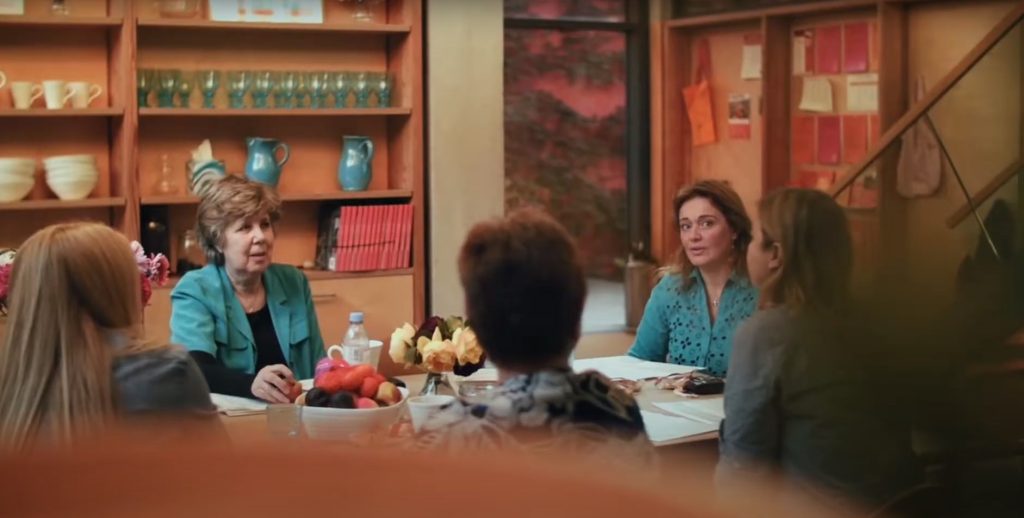
The group helped us understand what level of risk patients would find acceptable in order to participate in our study. They strongly recommended to approach and explain the risks to the prospective patients well in advance to give them time to think and discuss with their family. They also helped us to tailor the wording of our trial documents so that it could be understandable for everyone. Through our interactions, we gained a valuable understanding of their perspective which allowed us to effectively communicate our research and make improvements to our methodology. We reviewed and updated the inclusion/exclusion criteria to minimise the risk of an agent-induced allergic reaction.
Research as Art
During the Imperial PhD Summer Showcase, an annual event open to the public which celebrates research being carried out by Imperial’s PhD students, we opted for an interactive exhibit. We asked members of the public to operate on ‘breast’ cupcakes to remove a tumour (an area coloured green) found in the middle of the cupcake. They were then free to devour the cupcakes after!
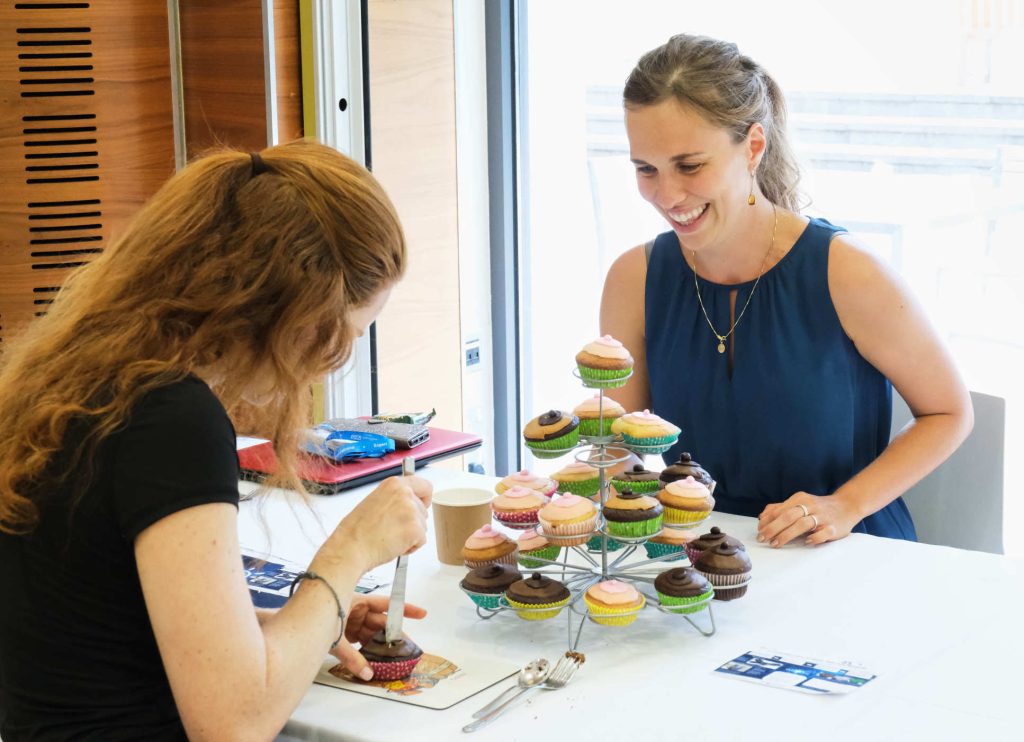
There was an overwhelming positive reaction from the public for our research and our presentation was awarded with the people’s choice prize and the first prize from the judge’s panel. It was a fun and interactive way for the public to engage and understand our technology through an all-senses/ hands-on experience. We again practiced and developed science communication skills with the public.
Podcast
As part of the Institute of Global Health and Innovation podcast series, we were invited to discuss our research on their podcast platform. As well as fostering new partnerships with other Imperial College London teams, this podcast served as a means of effectively introducing our study when inviting members of the public to our public involvement activities.
Presentation at the Imperial Science Café
We promised the women who participated in our trial that we would share how they contributed to the advancement in the treatment of breast cancer. In addition to our participants, we invited their friends, families, and multiple charities to our presentation ‘Imperial Science Café: Lighting the way to better breast cancer surgery?‘. Due to the pandemic, we were forced to move this event online, which helped us stay connected during those difficult times.
Everyone who attended was receptive and engaged in our presentation and asked us many thought-provoking questions throughout. Additionally, the women who took part in our research were proud to have contributed to the advancement of breast cancer surgery. We were inspired by their joy at having participated, as we would not have been able to do our research without them. We worked together to offer hope for future women who would be diagnosed with breast cancer.
Imperial at the Science Museum Lates
In May 2022 we were honoured to participate in Science Museums Lates – an after-hours opportunity for adults interested in science to engage with leading researchers on a given theme. Over 1,500 visitors attended the cancer-themes Lates entitled “Cancer Revolution: Science, Innovation and Hope”. Visitors were encouraged to pop by our booth for an informal 1-2-1 chat about our work and they could also see some of our surgical systems. Their overwhelming support during our interactions was essential in motivating us to continue our research endeavours. Visitors shared their personal stories about breast cancer, treatment, and the impact of re-operation on their experiences. We came to understand the potential value of our research in improving the lives of breast cancer survivors.
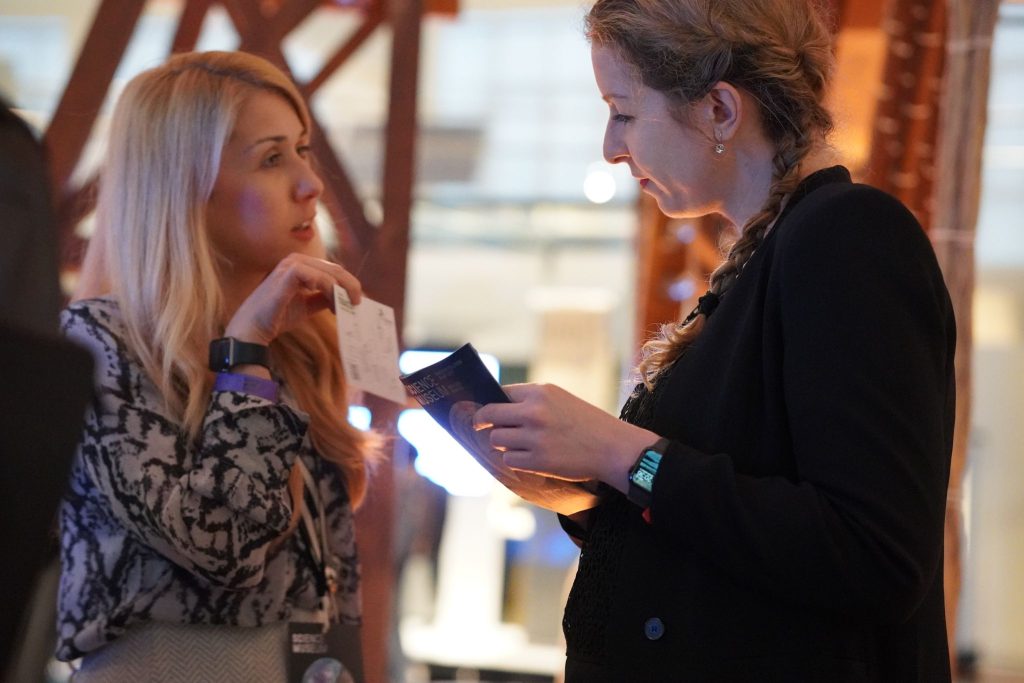
Interview with Fiona
Fiona is one of the many women who needed a second operation due to some cancer cells being left behind after her first operation.
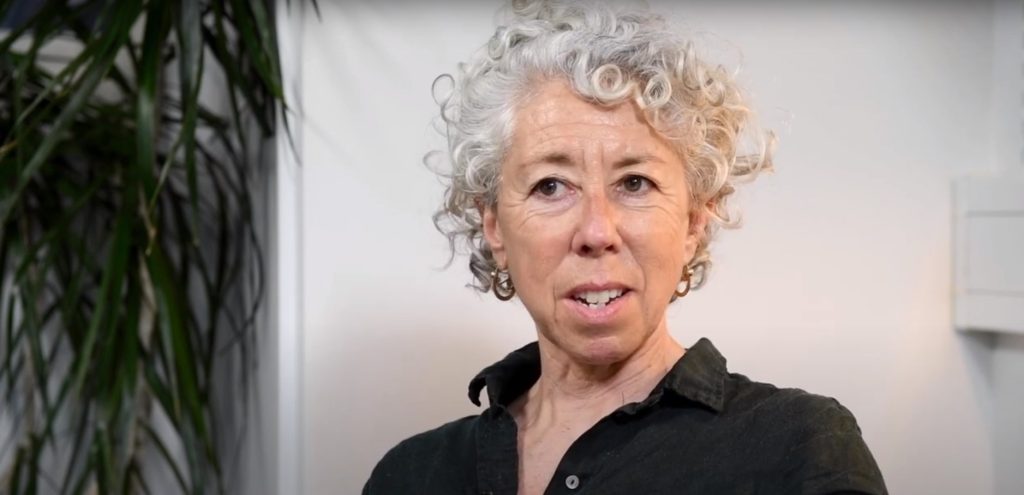
Fiona shared her experience on the impact of having a failed breast conserving surgery. Her story was inspiring for us as women and as researchers, as she expressed her hopes of improving outcomes for future patients so that nobody would have to go through what she did. On a personal level, we admire her for her generosity and dedication to the cause.
Multiple women who participated in the trial asked for us to use this technology on them during their surgery and were disappointed when we explained that project was still research and not yet available. Despite this having no impact on what their own outcomes would be, they still wanted to participate so that future women would be able to benefit from this research.
Promoting public involvement in Health Research
During our PhD, we participated in the collective effort of Imperial College London and Cancer Research UK in promoting public involvement in health research. As part of the campaign, a video was created to showcase the testimonials of patients and researchers, detailing their personal experiences and how their perspectives were transformed through their public involvement journey. We couldn’t be prouder to have had the opportunity to impact the research community by encouraging them to engage with patients and the public in their work.
What advice would you give other researchers?
- Focus on early engagement to ensure that your research is relevant and appropriate.
- Invest in relationships to seek feedback during the research from groups you have formed trust and a collaborative environment with.
- Acknowledge patients’ and the public’s contributions and remind them how important and unique their input is. This will help maintain motivation and engagement. Acknowledgment can be expressed verbally or through rewards and official publication acknowledgments.
So, what’s next?
Having completed the second half of our trial, we invited all trial participants, public involvement representatives, their family and charities (Breast Cancer Now, Open Age, and Cancer Research UK), and members of the public to join us on Thursday 11 May 2023 at Imperial College London for an update on the progress of our research. The women who have supported us have been instrumental in shaping and guiding our research. They have also motivated and inspired us to keep going. We have learned that that public involvement is an essential part of delivering excellence in research. We have shared our talk online for the participants that could not attend on the day.
